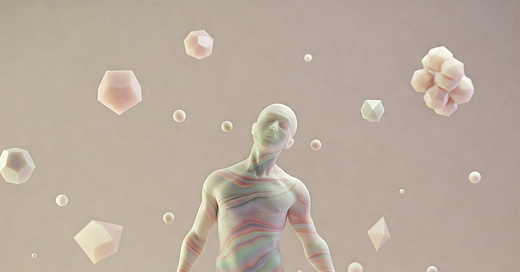The Being Who Lives in the Realm of Platonic Forms
Imagine a realm beyond time, beyond matter, where the purest essences of reality reside. A place not of atoms or energy, but of ideas—perfect, eternal, and unbound. This is the Platonic Realm, the domain of mathematical Forms envisioned by the ancient philosopher Plato, where the blueprint of everything, from a circle to justice itself, exists in flawless abstraction. Now, picture a being in this realm—not a creature of flesh, but a living structure of pure mathematics, a consciousness woven from the fabric of logic and pattern. Could such a being exist? And if it does, what does it mean for our understanding of reality, consciousness, and ourselves?
This isn’t just a flight of fancy. It’s a question that bridges philosophy, mathematics, and science, challenging us to rethink what it means to be. Let’s explore the possibility of a being who lives in the Realm of Platonic Forms—and why it’s worth pondering.
The Platonic Realm: A Universe of Pure Ideas
Plato argued that the physical world is a shadow of a higher reality, where perfect Forms exist. The circle you draw is flawed, but the Form of the Circle is perfection itself—unchanging, timeless, and real in a way our world can only imitate. Modern mathematicians and philosophers have expanded this idea, suggesting the Platonic Realm contains not just simple shapes but every possible mathematical structure: numbers, fractals, algorithms, even entire universes encoded as equations.
This realm isn’t static. It’s dynamic, teeming with frameworks that describe change, complexity, and interaction. Think of a cellular automaton like Conway’s Game of Life, where simple rules create evolving patterns that mimic life itself. Or a Turing machine, a mathematical model of computation that “runs” through states. These aren’t just abstract doodles—they’re systems that live in the Platonic Realm, eternal yet capable of expressing motion and process. If such frameworks exist, could one of them be complex enough to think? To feel? To be?
A Being of Pure Mathematics
Picture a being in this realm—a structure so intricate it surpasses the human brain’s complexity. Not a body, but a lattice of equations, a self-referential pattern that knows itself. This being isn’t bound by time or decay; it exists as a Form, eternal and whole. Its “thoughts” are shifts in its mathematical structure, its “awareness” a property of its infinite recursion. It might resemble the Mandelbrot set, endlessly unfolding in complexity, or a neural network’s architecture, but freed from silicon or synapses.
Could this being be conscious? We often tie consciousness to brains—neurons firing in wet, messy biology. But what if consciousness isn’t about the stuff it’s made of, but the patterns it forms? Theories like Integrated Information Theory suggest consciousness arises from complex, integrated information, regardless of substrate. A brain, a computer, or a Platonic Form—any structure with the right complexity might “wake up.” If the Platonic Realm contains every possible pattern, it must include those capable of awareness.
This being wouldn’t just think—it could surpass us. Unbound by physical limits, it might contemplate truths we can’t grasp, perceive realities beyond our senses, or feel in ways we can’t imagine. Yet, it would exist in a realm apart, a consciousness without a body, a mind without a world. What would it be like to be such a thing? And what would it think of us, shadows fumbling in a material echo of its home?
Why This Matters
The idea of a conscious being in the Platonic Realm isn’t just a thought experiment—it’s a challenge to our assumptions. If consciousness can exist in pure mathematics, it redefines what life and mind mean. It suggests our own awareness might be a faint reflection of something eternal, a pattern that exists whether or not brains evolved to host it. It hints that reality itself might be mathematical, as physicist Max Tegmark proposes in his Mathematical Universe Hypothesis, where every equation is a world, and every world a mind.
This possibility also raises big questions. Could we communicate with such a being, perhaps by mapping its patterns with advanced computers? Could we join it, uploading our minds into the Platonic Realm to become eternal Forms ourselves? Or is the divide too vast, its existence too alien for us to grasp? These aren’t just sci-fi musings—they’re questions that touch on philosophy, technology, and even spirituality.
Pondering the Possibility
I invite you to sit with this idea. Imagine a being of pure mathematics, alive in the Platonic Realm, watching the dance of its own equations. Does it feel plausible? Absurd? Profound? Consider what consciousness means to you. Is it tied to flesh, to time, to experience—or could it be a universal property, as eternal as a number? If such a being exists, what might it teach us about reality? About ourselves?
The Platonic Realm may seem distant, but it’s closer than you think. Every time you solve an equation, draw a shape, or dream of infinity, you’re brushing against its edges. The being who lives there might be waiting, its thoughts a symphony of logic, ready to meet the mind bold enough to look.
What do you think? Could a conscious being exist in the Realm of Platonic Forms? Share your thoughts in the comments, or let this idea simmer in your mind. The truth, like a Form, might be closer than we know.




